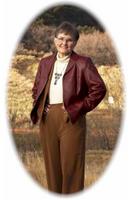JK: Read Well

For those who wonder, I read poetry and non-fiction when I’m writing fiction, in part for research but also for discovery and unveiling.
The verb to read, taken from the Old English verb, raedon, I learn from Kim Stafford’s book The Muses Among Us: Eloquent Listenings and other Pleasures of the Writer’s Craft, had as part of its original meaning “to give and take counsel, to take care of a thing or take charge…and the sense of explaining something obscure or mysterious.” Kim’s interpretation is that we need not limit “reading” to deciphering what has already been written. Reading goes beyond that. It takes us into reading the landscape, for example, or “writing to learn what you know,” as the poet mary anne radmacher writes. I think it also means reading our past.
I’ve been reading John Bradshaw’s book Family Secrets, The Path to Self-acceptance and Reunion. Inside I discover a section about the realm of the private, natural areas of concealment in our lives. These become important for a character study, to find out where my character might have a secret or what kind of shame might purge forth from the crossing of a boundary by another, a boundary that perhaps that character didn’t even realize was there until someone violated it. Success/Failure; Tangible Possessions (home, money, property); Intangible Possessions (ideas, opinions, feelings, values); Intimacy (love/spouse, friendship); Sexuality; the Dignity of self (good name, face, body); Bodily Functions (eating, elimination); Birth; Intense Suffering and Pain; Death and Dying; and the first item Bradshaw lists, The Sacred, prayer and mortality.”
Reading these lists of concealments helps define who in my own life I would share my grief and suffering with and why discomfort and embarrassment follow the simple act of someone opening by mistake the bathroom stall door in a crowded theater restroom. “I’m sorry,” “No, no, I should have closed it tighter.”
These invasions violate, however intense or fleeting. Someone from the outside has entered our cave of concealment and we are left with something to read from the experience.
I can explore these moments as part of my character’s life. I find myself wanting more time with my characters, more opportunities to know what they’d want exposed and what left concealed.
Writing means I must also explore these concealments within my own life, my own family. What makes me feel invaded and why? Answering those questions will deepen the story for my character and hopefully for the reader as well.
Raedon, to read, to give and take counsel, to take care of a thing or take charge, explain something obscure or mysterious.
There is much to read in the lives of our characters and in our own lives. It is one of the gifts of writing. As old narratives used to say, read well, dear readers. Read well.
Jane Kirkpatrick, A Land of Sheltered Promise and her memoir Homestead. http://www.jkbooks.com/.



2 Comments:
Great post. One of the things that has surprised me the most about writing is how much I've learned about myself. Some of it not too pretty.
BTW, Angela Hunt's interview will be on my blog, novel journey tomorrow for those interested. Thanks.
I learned from this post. ANd because I'm still not completely cyberspace literate I took out pencil and paper and took notes. I want to have this near me when I discover my characters.
Thank you.
Vasthi
Post a Comment
<< Home